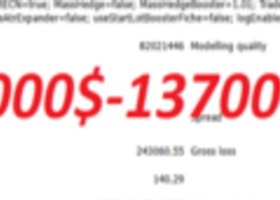
Yen continues to win against dollar on plunging Chinese stocks, Hong Kong's index also seen lower
On Wednesday the dollar dropped to one-and-a-half month trough against the broadly stronger yen, losing more than 1% as plunging Chinese stocks bolstered investor demand for the shelter of the Japanese currency.
USD/JPY was last at 121.09, the weakest since May 22.
The yen was trading close to one-month highs against the euro, with EUR/JPY down 0.86% to 133.699.
China’s stock rout widened to the country’s commodities markets as investors rushed to raise cash, says Bloomberg.
Everything from silver to eggs dropped with the Shanghai Composite Index, which crashed to a three-month low on Wednesday.
More to that, on Wednesday, Hong Kong’s Hang Seng
Index, which had fared better than its mainland counterpart, started to
see some spill over, says MarketWatch.
Beijing's measures to stabilize equities are failing to stop a stock market collapse.
Now more than 70% of mainland China stocks are locked, via trading halts and other measures that China's regulators introduced to encourage investor confidence. That is 1,331 companies, or 2.6 trillion shares, representing some 40% of China’s total stock market — frozen in ice.
On the Shanghai Futures Exchange, metals including nickel and silver fell
to their daily limits, while rubber entered a bear market. The volume
of copper traded was almost six times the three-month average. Steel
rebar and iron ore, as well as eggs, sugar and soybean meal dropped to
the lowest level allowed by their exchanges, Bloomberg reported.
Elsewhere in the currency trading, the euro pushed higher against the dollar, with EUR/USD up 0.44% to 1.1062, off the one-month low of 1.0915 touched on Tuesday.
The shared currency remained supported by hopes for a plan to avoid Greece's exit from the euro and insolvency of the country's lenders after European leaders gave Athens a five-day deadline to come up with a new bailout deal.


